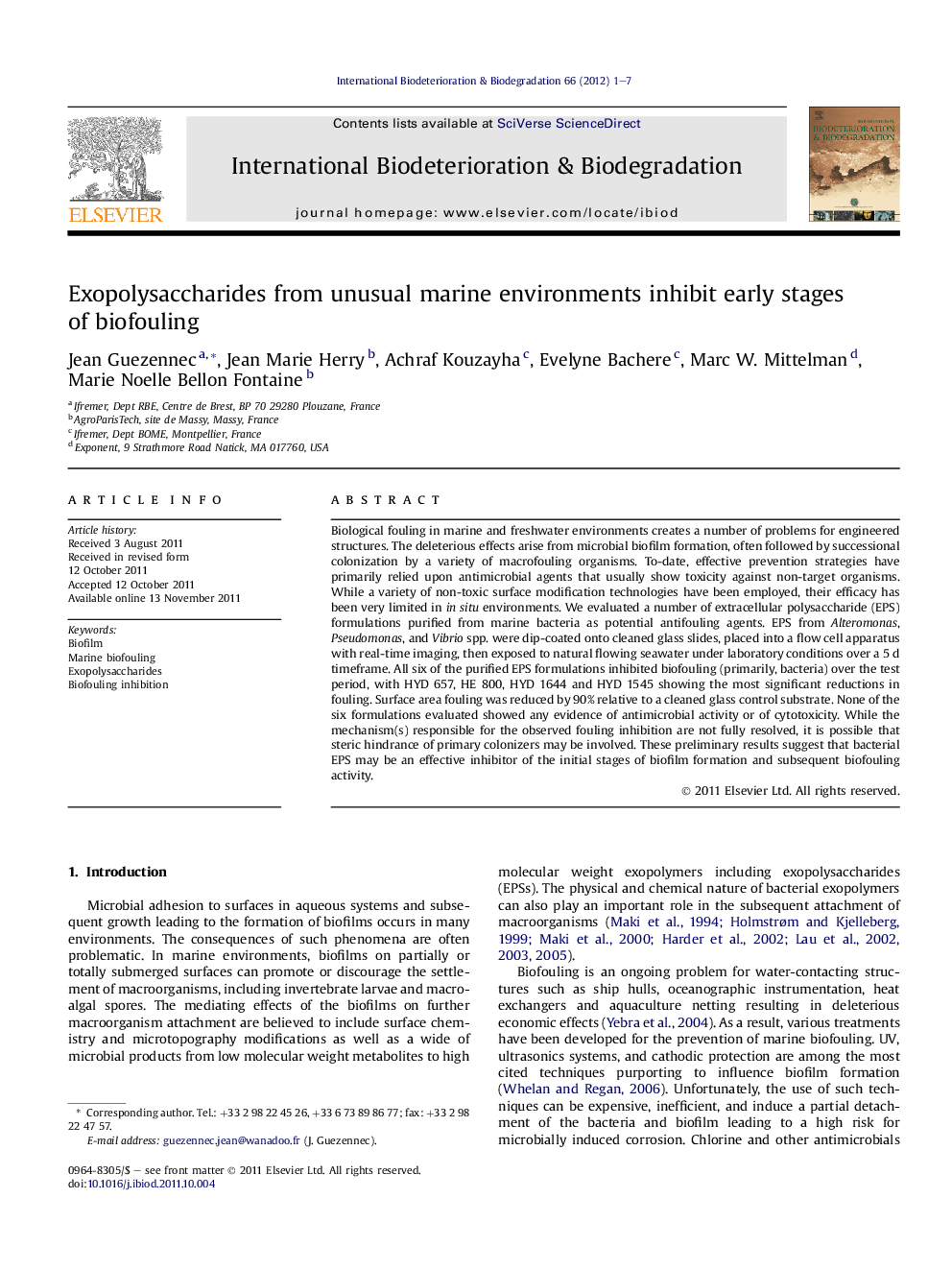| Article ID | Journal | Published Year | Pages | File Type |
|---|---|---|---|---|
| 4365353 | International Biodeterioration & Biodegradation | 2012 | 7 Pages |
Biological fouling in marine and freshwater environments creates a number of problems for engineered structures. The deleterious effects arise from microbial biofilm formation, often followed by successional colonization by a variety of macrofouling organisms. To-date, effective prevention strategies have primarily relied upon antimicrobial agents that usually show toxicity against non-target organisms. While a variety of non-toxic surface modification technologies have been employed, their efficacy has been very limited in in situ environments. We evaluated a number of extracellular polysaccharide (EPS) formulations purified from marine bacteria as potential antifouling agents. EPS from Alteromonas, Pseudomonas, and Vibrio spp. were dip-coated onto cleaned glass slides, placed into a flow cell apparatus with real-time imaging, then exposed to natural flowing seawater under laboratory conditions over a 5 d timeframe. All six of the purified EPS formulations inhibited biofouling (primarily, bacteria) over the test period, with HYD 657, HE 800, HYD 1644 and HYD 1545 showing the most significant reductions in fouling. Surface area fouling was reduced by 90% relative to a cleaned glass control substrate. None of the six formulations evaluated showed any evidence of antimicrobial activity or of cytotoxicity. While the mechanism(s) responsible for the observed fouling inhibition are not fully resolved, it is possible that steric hindrance of primary colonizers may be involved. These preliminary results suggest that bacterial EPS may be an effective inhibitor of the initial stages of biofilm formation and subsequent biofouling activity.
► We evaluated the antifouling activity of EPS from several marine bacterial strains. ► We found EPS from all strains evaluated inhibited microfouling in flowing seawater. ► The fouling inhibition was not associated with cytotoxic or biostatic activity. ► We conclude that purified EPS formulations may inhibit primary fouling populations.
